
The points are tallied, the math is done, and the results are in.
Yes, all year long the diligent and endearingly disgruntled Book Marks elves have been mining reviews from every corner of the literary internet. Brows furrowed, stomachs growling, they’ve worked from break of dawn to blink of dusk, seven days a week, scouring the book review sections of over 150 publications—from the New York Times to the Sydney Morning Herald, the Toronto Star to the London Review of Books—all so that we can now say with certainty that these are the best reviewed fiction titles of 2023.
Happy reading!
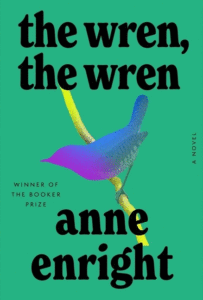
1. The Wren, the Wren by Anne Enright
(W. W. Norton & Company)
18 Rave • 2 Positive
Read an interview with Anne Enright here
“So convincingly has Ms. Enright conjured the archetype of the wandering Irish bard who leaves behind him a legacy of abandoned women and melodious, honey-tongued verse … Is it possible for poems to be fictitious? In fact, these nostalgic odes to love and Ireland are limpid, lilting, wholly credible stand-alone works … One of Ms. Enright’s remarkable feats is to write believably across three generations, capturing epochal differences but also a buried, or even repressed, continuity. The fullness of Ms. Enright’s talent is reflected as well in her treatment of what has come to be known, a bit glibly, as the ‘art monster.’”
–Sam Sacks (The Wall Street Journal)
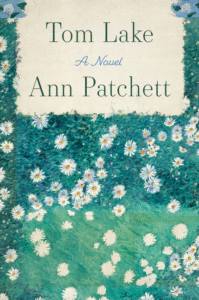
2. Tom Lake by Ann Patchett
(Harper)
19 Rave • 4 Positive • 1 Mixed
Read an interview with Ann Patchett here
“Not that a heart is not broken at some point, but it breaks without affecting the remarkable warmth of the book, set in summer’s fullest bloom … This generous writer hits the mark again with her ninth novel … Knowing Patchett’s personal history with motherhood makes the fullness of the maternal feelings she imagines for Lara Kenison particularly poignant.”
–Marion Winik (The Washington Post)
3. After the Funeral by Tessa Hadley
(Knopf)
15 Rave • 6 Positive
Read an interview with Tessa Hadley here
“This new collection is a great introduction to her work and for those of us already familiar with Hadley, it’s a great addition. Throughout the collection, Hadley spins out character studies of (mostly) women at odds with themselves, their partners, their families, or life in general … Hadley does a wonderful job of weaving past and present together as the sisters are forced to confront their memories and relationships. And, of course, there are those moments of shining prose … Rife with deft and often beautiful prose, and astute but compassionate characterization, this is a wonderful collection.”
–Yvonne C. Garrett (The Brooklyn Rail)
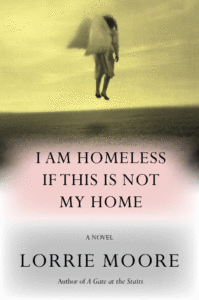
4. I Am Homeless If This Is Not My Home by Lorrie Moore
(Knopf)
20 Rave • 9 Positive • 6 Mixed • 1 Pan
Read an interview with Lorrie Moore here
“Moore excels in…[the] neurotic but intimate conversations that go nowhere, and the scenes in the hospice are viscerally done … Moore shows that grief and ghosts can be written about persuasively, and wittily, without turning a novel into a horror story … A triumph of tone and, ultimately, of the imagination. For Moore, death doesn’t necessarily mark the end of a story.”
–Abhrajyoti Chakraborty (The Guardian)
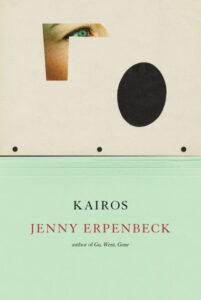
5. Kairos by Jenny Erpenbeck
(New Directions)
15 Rave • 9 Positive
Read an excerpt from Kairos here
“A cathartic leak of a novel, a beautiful bummer, and the floodgates open early … If Kairos were only a tear-jerker, there might not be much more to say about it. But Erpenbeck, a German writer born in 1967 whose work has come sharply to the attention of English-language readers over the past decade, is among the most sophisticated and powerful novelists we have. Clinging to the undercarriage of her sentences, like fugitives, are intimations of Germany’s politics, history and cultural memory … She is writing more closely to her own unconscious … I don’t generally read the books I review twice, but this one I did … Profound and moving.”
–Dwight Garner (The New York Times)
6. August Blue by Deborah Levy
(Farrar, Straus and Giroux)
13 Rave • 8 Positive • 2 Mixed
“Ms. Levy rewards close readers by packing her sardine-can-slim novels with tight connections … August Blue, which builds to a moving climax, is more emotionally accessible than Ms. Levy’s previous novels. But it too encompasses the cerebral and the sentimental, realism and surrealism, love and loss, the drive to create art—and the ambiguities of human relations.”
–Heller McAlpin (The Wall Street Journal)
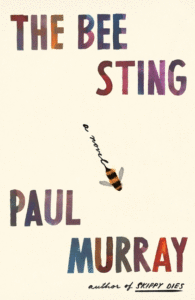
7. The Bee Sting by Paul Murray
(Farrar, Straus and Giroux)
18 Rave • 5 Positive • 5 Mixed
Read an excerpt from The Bee Sting here
“The Bee Sting…ought to cement Murray’s already high standing. Another changeup, it’s a triumph of realist fiction, a big, sprawling social novel in the vein of Jonathan Franzen’s Freedom. The agility with which Murray structures the narrative around the family at its heart is virtuosic and sure-footed, evidence of a writer at the height of his power deftly shifting perspectives, style and syntax to maximize emotional impact. Hilarious and sardonic, heartbreaking and beautiful—there’s just no other way to put it: The Bee Sting is a masterpiece.”
–Jonathan Russell Clark (The Los Angeles Times)
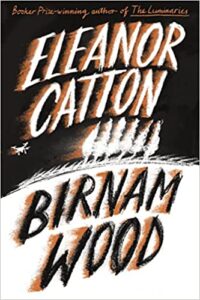
8. Birnam Wood by Eleanor Catton
(Farrar, Straus and Giroux)
21 Rave • 7 Positive • 3 Mixed • 1 Pan
Read an excerpt from Birnam Wood here
“Bold, ambitious … A grand, chilling thriller tightly bound by inescapable concerns … Birnam Wood moves at a faster clip with arguably higher stakes. Make no mistake: It’s a book that grips you by the throat until its final paragraph. Catton successfully scorches the earth with her prose … Little feels certain or safe. The literary novel binds itself with a genre thriller in Catton’s hands … Free to play with form, Catton winds methodically through the minds of her characters … I’ll unabashedly state that Birnam Wood is a brash, unforgettable novel.”
–Lauren LeBlanc (The Boston Globe)
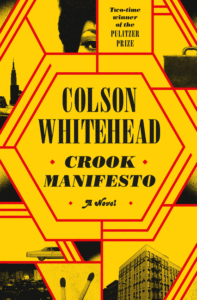
9. Crook Manifesto by Colson Whitehead
(Doubleday)
15 Rave • 10 Positive • 4 Mixed • 1 Pan
Read an interview with Colson Whitehead here
“Both deceptively substantive and sneakily funny, a wise journey through Harlem days and nights as lived by Ray Carney, a conscientious furniture salesman and family man who happens to run a little crooked … Whitehead has always had a sharp instinct for the workings of culture … Whitehead’s New York of the ‘70s is a fully realized universe down to the most meticulous details, from the constant sirens and bodega drug fronts to a sweltering, abandoned biscuit factory … A…reminder, as if we still needed one, that crime fiction can be great literature. These books are as resonant and finely observed as anything Whitehead has written.”
–Chris Vognar (The Los Angeles Times)
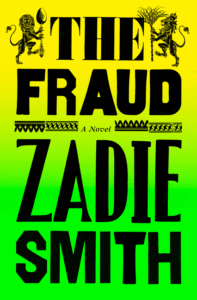
10. The Fraud by Zadie Smith
(Penguin Press)
20 Rave • 6 Positive • 9 Mixed • 1 Pan
“It offers a vast, acute panoply of London and the English countryside, and successfully locates the social controversies of an era in a handful of characters … Touchet is the most morally intelligent character Smith has written … The book’s structure is uneven. One wishes, for instance, that the chapters would signal their time jumps more consistently … But these infelicities stop mattering when we are deep into the trial and the book turns into a portrait of people with thwarted ambitions, of people who, like Ainsworth, become frauds without knowing … As always, it is a pleasure to be in Zadie Smith’s mind, which, as time goes on, is becoming contiguous with London itself. Dickens may be dead, but Smith, thankfully, is alive.”
–Karan Mahajan (The New York Times Book Review)
*
Our System:
RAVE = 5 points • POSITIVE = 3 points • MIXED = 1 point • PAN = -5 points
The ten books with the highest points totals are then ranked by weighted average
If you buy books linked on our site, Lit Hub may earn a commission from Bookshop.org, whose fees support independent bookstores.

